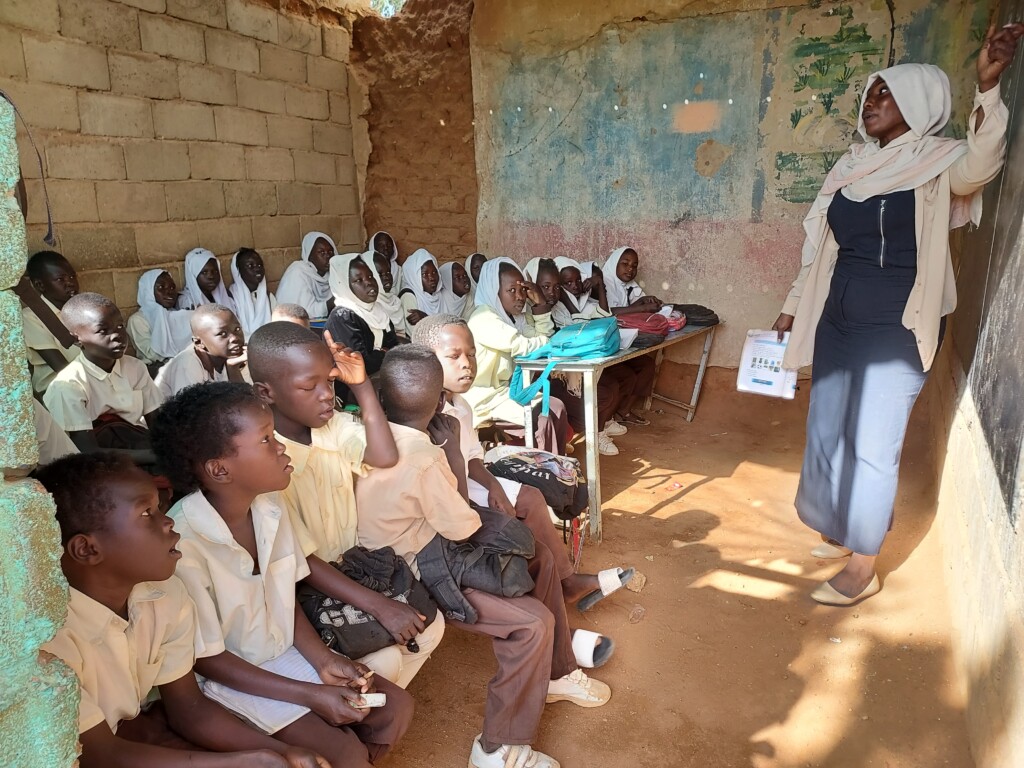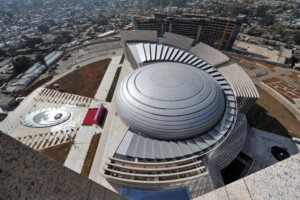Sudanese schoolteachers on strike again

A school class in one of the poor suburbs in Omdurman (Photo: RD)
KHARTOUM –
A new nationwide strike of state schoolteachers enters its fourth day today. On Sunday, the Sudanese Teachers’ Committee (STC) decided to down tools, less than two weeks after announcing a breakthrough in talks with the authorities.
STC spokesperson Sami El Bager told Radio Dabanga that the teachers now strike to protest the delay in the payment of their salaries of January and February.
“A number of teachers received these dues only by mid-March. Others didn’t, and this is unacceptable,” he said. “It causes teachers and their families a lot of problems, in particular as the wages are far from enough to cover the daily needs of an average family. Therefore, we decided on Sunday to call on all the state teachers to down tools until the delayed salaries are paid.”
El Bager added that the Finance Ministry ignored what was agreed upon with the special committee formed by the Sovereign Council regarding the rights of teachers. “The ministry did not abide by its pledges to start paying delayed dues and a bonus to the teachers from Sunday onward. “
He called on the Ministry of Finance to adhere to what was agreed upon, “so that we, as teachers, do not have to enter into another confrontation”.
Ongoing struggle
In March last year, the STC announced a partial strike in all states of Sudan as the Finance Ministry did not meet their demands for a raise of the minimum wage and a reform of the salary structure, payment of delayed salaries and allowances, and a better work environment.
When talks with the Finance Minister “reached a dead end“ in mid-December, the Committee called on all teachers to close the primary, middle, and secondary government schools in the country from January 8 until January 28.
More than 16,000 government schools in Sudan participated in the strike.
A month into the strike, the head of the Sudanese branch of the El Gadiriya Sufi sect, Sheikh El Reyeh Azrag Teiba, and a number of politicians proposed to mediate between the teachers and the authorities.
After a special mediation committee was formed by the Sovereignty Council, Finance Minister Jibril Ibrahim responded with a promise to pay the delayed dues by February 12, but could not commit to increase the minimum wage. However, the ministry failed to meet its pledge by that date. This prompted teachers to doubt the sincerity of the ministry’ commitments, pushing some to label them as ‘political fraud’.
In late February, the STC announced a temporary strike suspension to support continued negotiation efforts. The suspension was extended in mid-March, in a sign of goodwill, and again at the beginning of April. Describing the Finance Ministry’s new pledges as a breakthrough, the STC said that “what is agreed upon is moving in the direction of implementation.”











 and then
and then